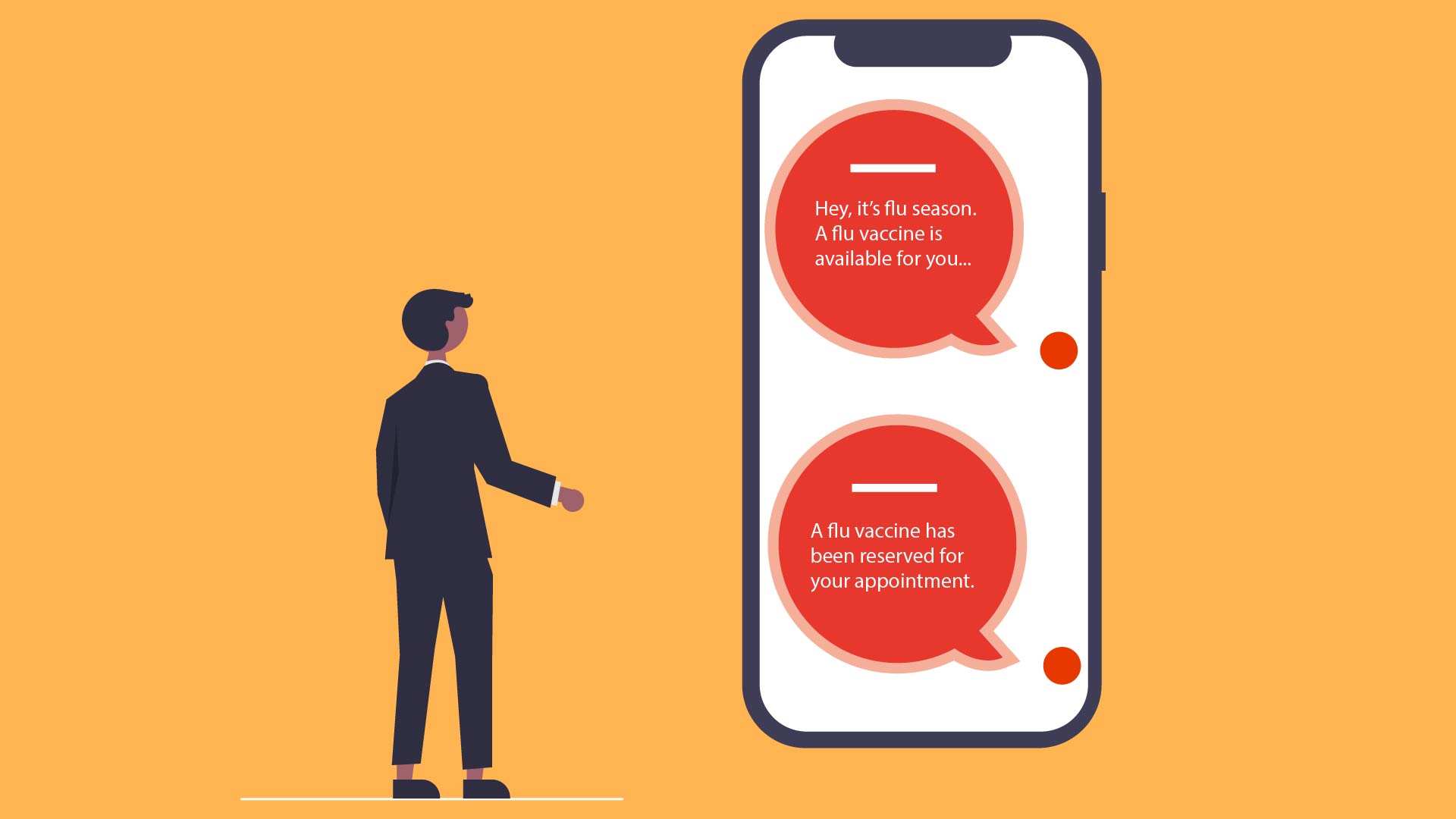According to Pew polls, a growing share of Americans (69% as of Feb 2021) either say that they plan to get the COVID-19 vaccine or that they have already been vaccinated. However, vaccine hesitancy remains to be a cause for concern. In April, the CDC reported that more than five million Americans (8%) had missed their second shot of Pfizer or Moderna vaccines. While many countries are facing acute shortages of vaccines, the US is sitting on a surplus and demand is falling after peaking in mid-April. Earlier this week, Philadelphia was forced to ship soon-to-expire vaccine doses to other distribution sites to avoid having to throw them away.
A study published recently found that text-based nudges reminding people about their scheduled vaccine appointments may help boost vaccination rates. The intervention was tested in a large field experiment (N = 47,306) where the goal was to improve the adoption of the influenza vaccine. This, the authors wrote, was in light of the fact that only half of Americans were vaccinated during the 2019-2020 influenza season which claimed an estimated 35,000 lives. They believe that the text-based intervention could work similarly for COVID-19 vaccination.
A total of 26 scientists worked in small teams to design different text messaging protocols. The alternatives generated by teams differed in how the texts were worded and how many times it was sent to participants during a period of 3 days preceding their appointment for the vaccine shot.
6 out of the 19 protocols generated by researchers significantly improved vaccination levels. The average increase in vaccination levels (for 19 protocols) was 5%. The top-performing variant of the intervention boosted vaccination by a factor of 11% and it only costs less than a dime per person. This protocol involves sending a total of two texts; one 72 hours, and the other 24 hours before the scheduled appointment. The first is a reminder that “it’s flu season,” “a flu vaccine is available for you,” and that “a vaccine reminder” would be sent before the appointment. The second text is to read – “this is a reminder that a flu vaccine has been reserved for your appointment.”
The researchers opined that “the successful script could be used as a template for campaigns to encourage the adoption of life-saving vaccines, including against COVID-19”. Read more about the study here.








